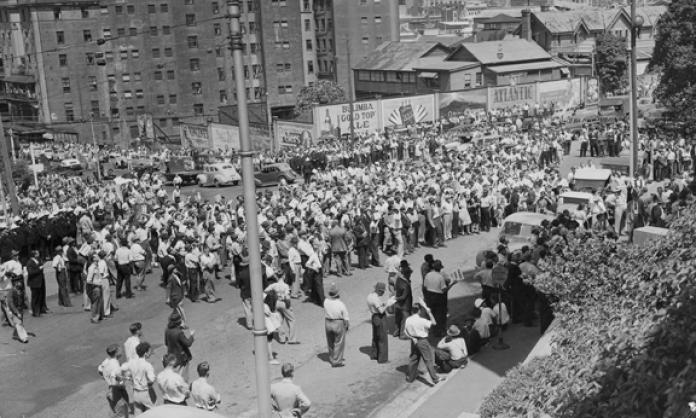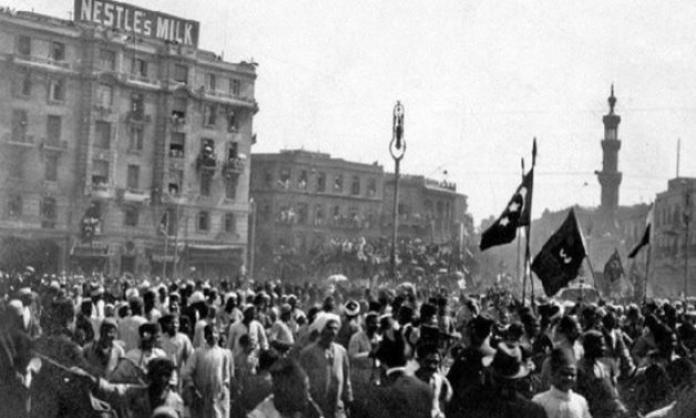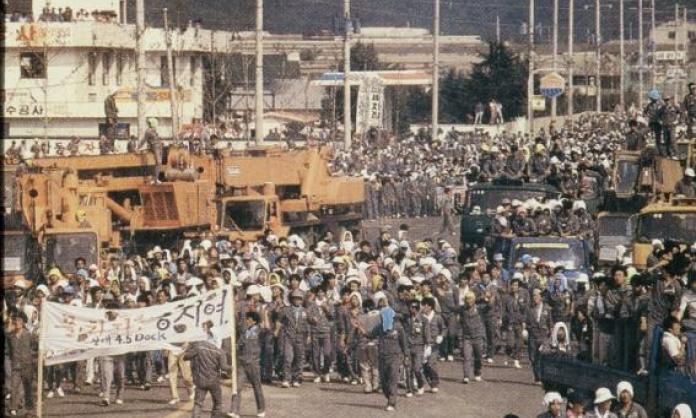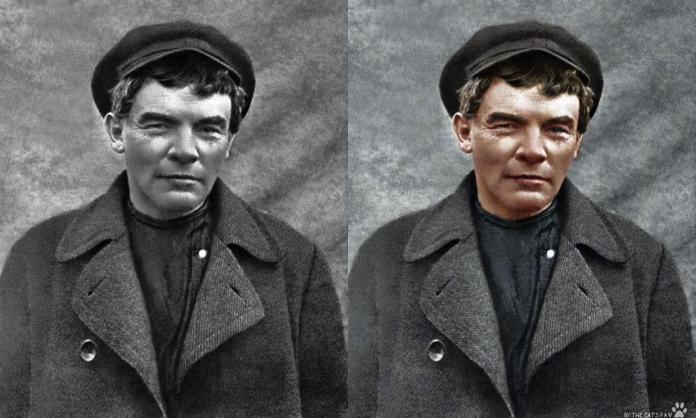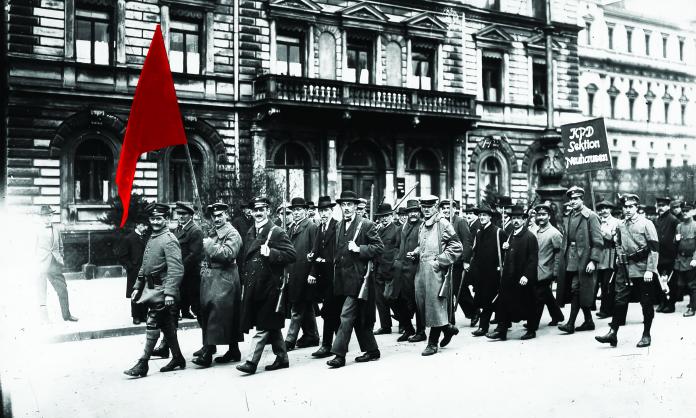In his maiden speech to the Queensland parliament in 1944, Australia’s only Communist MP left no room for doubt about what distinguished him from the self-serving cretins who usually inhabit the halls of power: “So far as I am concerned, in this house I represent and stand clearly for one class and one class only — the useful people in this community, not the useless parasites who fatten on their lifeblood”.
Fred Paterson’s journey to parliament was not the typical combination of ambition, nepotism and privilege that is all too familiar today. Fred was a fighter. He had decades of experience standing with workers in struggle and advocating for the oppressed.
After a relatively modest, Christian upbringing, Paterson was politicised by the First World War. A prize-winning student, he was awarded a Rhodes scholarship to study at Oxford and had ample opportunity to become a rich city barrister. Yet Fred’s only ambition was to improve the lives of working people and advance the cause of socialism.
As a young man living in the “red north” of Queensland, joining the Communist Party (CPA) was the obvious choice for Paterson. Despite him at times being publicly at odds with the twists and turns of the Stalinist party leadership, hundreds of ordinary workers and CPA members respected Paterson as someone who could explain the dynamics of class struggle and was willing to devote himself to the fight for socialism.
Paterson explained in his memoir that, for him, practising law was always a part time pursuit, with most of his time spent working for the party: “Between cases I did an enormous amount of work for the Communist Party, addressing meetings all over North Queensland from the coast to the Northern Territory border. Even when visiting a town on circuit court work, I would often address a public meeting at night. International politics, national, state and municipal politics, civil rights, police oppression, trade unions, wages and conditions, democratic rights were only some of the subjects discussed at these meetings”.
Paterson’s involvement in the struggle against fascism and in defence of unemployed migrants helped forge his reputation as a class fighter.
During the Great Depression many migrants travelled north in search of work. Queensland had the highest number of Italian immigrants of any state in Australia, many having left Italy to escape Mussolini’s repressive fascist regime. Not surprisingly, the first Australian anti-fascist march was held in the far north Queensland town of Halifax in 1925.
While the government cracked down on these “radicals”, Paterson stood in solidarity with them. Following the arrest of three workers at an anti-fascist protest in Ingham in 1931, Paterson led their successful legal defence with the aid of a sympathetic jury of waterside workers.
Anti-migrant racism was formalised in 1931 when sugar cane farmers and the conservative Australian Workers Union (AWU) agreed a deal to preference British subjects in farm work. Paterson contested the legality of this deal on behalf of the newly formed Foreign Cutters Defence Organisation. The CPA campaigned on the issue, and even began publishing its newspaper in Italian and Greek.
In 1933 a deadly epidemic of Weil’s disease broke out in the sugar cane farms. Weil’s disease is spread by rats that inhabit the cane fields, and causes multiple organ failure and eventually painful death. Cane cutters and their families lived in constant fear of the disease.
Burning the cane before harvesting is the best way to control outbreaks, but it also reduces the sugar yield of the cane and the profits of the cane growers. Growers therefore campaigned against burning crops, shamefully winning support from both the ALP state government and AWU.
Despite the forces stacked against them, the cane cutters went on strike in response, and by August 1935, 2,000 workers had shut down the sugar mills. Strike committees were set up, and when the state government refused relief to laid-off workers, the CPA and their Militant Minority Movement in the unions organised fundraising, communal kitchens and accommodation. CPA activists and workers in the mining towns of Collinsville and Scottsville raised hundreds of pounds to support the strike, and women organised significant solidarity actions.
Although the strike had only limited success, it raised the profile and prestige of the CPA, and fuelled resentment towards the ALP.
Paterson’s active support for the cane cutters helped him win election to the Townsville local council in 1939.
Working with allies from a left wing split within the Labor Party, Paterson had enough influence on the council to make real improvements for local people, including providing cheap stoves for Townsville workers, as well as establishing public libraries, a swimming pool and a public iceworks when the military took over the existing one during the war.
When the CPA was banned in 1940 as a result of its then opposition to the war, party members had to find creative ways to avoid repression. In Townsville, this often involved holding meetings in stands during football matches and on surfboards out at sea.
Paterson continued to speak and agitate despite the ban. Once in Cairns, he addressed a meeting standing on a table in the ocean because the authorities had no jurisdiction to enforce the ban past the high water mark.
The campaign for the seat of Bowen in the 1944 state election pitted Paterson against ALP incumbent Dick Riordan. Riordan had been a waterside worker prior to his election and was known as a militant before becoming an MP. Once a parliamentarian, however, he promptly forgot about his working class constituents.
Paterson’s campaign manager, Jim Henderson, wrote in his memoirs that wharfies at Bowen dock painted in large white letters across the jetty: “Since his election to parliament, Riordan has never crossed this line to see how the wharfies are getting on. He has placed himself on the other side of the fence”.
After winning the election and moving to Brisbane to take up his seat, Paterson made sure that people in his electorate were kept informed of parliamentary goings on. After each sitting, Paterson would ride his horse to remote communities to provide updates, as well as to host public meetings.
Paterson saw it as a duty to stand up for ordinary people as an MP, and frequently took part in formal debates as a way to advance the cause.
In 1945 as part of a debate on health funding, he argued that community and hospital workers should control the administration of services and that nurses needed a significant pay rise.
His opponent argued that because nurses love their profession, money was less important to them. Paterson rejected this claim, arguing instead that if public service typists could be paid more, nurses’ wages should be increased accordingly regardless of the nature of the work.
Paterson also used his position in parliament to argue for mass action to achieve socialism, and against any reliance on an enlightened minority to bring about change from on high. In one 1944 speech to parliament he insisted, “Socialism is in accordance with the highest and noblest traditions and ideals of mankind. But socialism cannot be imposed upon the people by a minority. It is a movement in the interests of the vast majority and will come into existence only when a majority of the people want it and are organised sufficiently to obtain and maintain it”.
The biggest test for Paterson came in 1947 and 1948 with the Queensland rail strike.
In September 1947, rail unions applied to the Queensland Arbitration Commission for a flow-on of a pay rise won by metal workers under federal awards, along with a claim for improved penalty rates. The Hanlon Labor government – with Hanlon a former railway worker, no less – refused both claims. The workers struck in response.
Determined to defeat the strike, the state government launched a propaganda campaign against the rail workers, accusing them of being taken in by a Communist plot. The state government was assisted in its attack on the strike by the federal Chifley Labor government, which declared strikers ineligible for commonwealth social security benefits.
Paterson supported the railway workers from the outset, taking a shift on the picket every morning, offering the strikers legal advice and using his position in parliament to publicly defend the strikers. He famously argued on the floor of parliament;
“There comes a time in the life of every man when he comes up against what he considers to be an injustice so grave that he cannot tolerate it, and he begins to kick. If he is in an organisation, he kicks in an organised way. That is what the trade unions have done on this occasion — the workers who have struck are taking what they believe to be effective measures to control their interests.”
During the parliamentary debate, he constantly emphasised the need for workers to take matters into their own hands. Despite being a barrister, he rejected the idea that workers should limit their struggles to what was permitted by law, declaring he had “no faith in the court as an instrument in improving the condition of workers”.
On St Patrick’s Day 1948, while taking part in a procession of railway workers in support of the strike, Paterson was attacked by a plain clothes policeman and his skull bashed in with a police baton. His injuries were so severe that he was not expected to survive the night.
The Queensland ALP caucus met and decided that no inquiry would be held. No charges were ever laid against the police sergeant involved.
The day after the bashing, the Courier Mail quoted the Labor premier expressing indignation at the demonstrators’ behaviour and admiration for the police, calling the events “a deliberately provoked brawl by the communist element which sees defeat staring it in the face … I have reports from all quarters of their [police] tolerance, patience and care in handling people during this difficult period”.
In a show of support for Paterson, workers in Townsville held large angry street demonstrations. In Bowen and Collinsville, indignant mass meetings were organised, while in NSW coalminers stopped work for 24 hours, and in Darwin a oneday strike was called. Even the ACTU was moved to formally condemn the unprovoked attack.
While Paterson struggled to recover from his injuries, the Labor government redrew the boundaries of his electorate, making it unwinnable, ending Paterson’s parliamentary career.
Paterson’s story, and the struggles of the workers he represented, are a largely forgotten part of Australian history. But with a new generation drawn again to the idea of socialism and its promise of genuine equality and freedom, it is high time it was rediscovered.
Paterson’s unapologetic stand against racism, fascism, conservative union officials, the bankruptcy of the ALP and all the other injustices of capitalism – both inside and outside parliament – is one that needs to be continued today.




